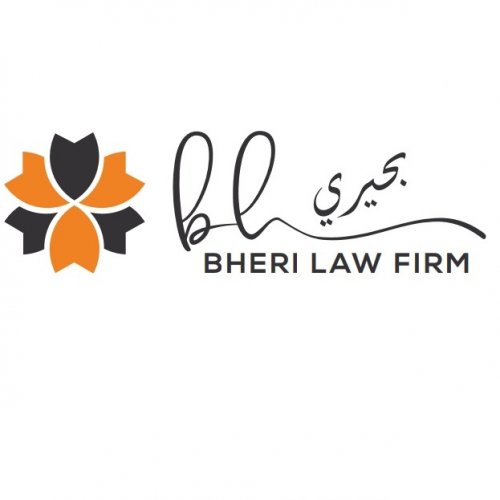Best Civil & Human Rights Lawyers in Libya
Share your needs with us, get contacted by law firms.
Free. Takes 2 min.
Or refine your search by selecting a city:
List of the best lawyers in Libya
About Civil & Human Rights Law in Libya
Civil and human rights law in Libya is primarily guided by a mix of international treaties, domestic laws, and the Libyan constitution. After the 2011 Libyan Revolution, the country has been in a state of transition, which has affected the implementation of laws and the protection of rights. Libya is a signatory to various international human rights agreements, including the International Covenant on Civil and Political Rights. However, due to ongoing political instability, the enforcement of these rights can be inconsistent. Civil and human rights include protection from discrimination, freedom of expression, right to fair trial, and protection from unlawful detention and torture.
Why You May Need a Lawyer
If you find yourself in a situation where your civil or human rights have been violated or threatened, a lawyer specializing in these areas can provide critical assistance. Common scenarios include unlawful detention, discrimination, violations of freedom of speech or assembly, and human rights abuses during conflicts or civil unrest. A lawyer can help you understand your rights, navigate the legal system, and represent you in legal proceedings to ensure your rights are protected.
Local Laws Overview
Libya's legal system is influenced by a combination of civil law and Islamic law. The country's transitional political state means that laws can be subject to change. Key legislative texts include the Constitutional Declaration of 2011, which serves as a temporary constitution, and other civil and penal codes. Under Libyan law, civil rights include personal freedom, respect for human dignity, and political rights such as the right to vote and run for office. Human rights issues, particularly concerning freedom of expression and judicial fairness, remain challenging, and legal protections might not always be effectively applied.
Frequently Asked Questions
What rights are protected under Libya's current legal system?
Rights protected include equality before the law, personal freedom, freedom from torture, and rights to free expression and assembly. However, enforcement can be inconsistent due to political instability.
Can I report a breach of my civil rights?
Yes, breaches can be reported to the Libyan civil courts, as well as to various human rights organizations operating in the country. However, the effectiveness may vary.
How are international human rights treaties enforced in Libya?
While Libya is a party to several international treaties, local enforcement is often weak due to political unrest. Legal assistance can help navigate these complexities.
What should I do if I’ve been detained unlawfully?
Contacting a lawyer immediately is crucial. A lawyer can help you understand your rights, challenge the lawfulness of your detention, and guide you through the legal process.
Are women’s rights protected in Libya?
Women's rights are legally recognized, yet cultural and societal barriers can pose challenges. Legal support is crucial for addressing violations effectively.
Can legal proceedings be expected to be fair and impartial?
While the framework for fair trials exists, impartiality can be compromised due to the political climate. Legal representation is important to push for fairness in proceedings.
What recourse is available for victims of torture?
Victims can file complaints through local and international bodies, though obtaining justice can be complex. Legal assistance is key to navigating these avenues.
How does the legal system address discrimination?
Libyan law prohibits discrimination, though enforcement may be inconsistent. Legal advocacy can be crucial for addressing discriminatory practices.
What is the role of NGOs in protecting human rights?
NGOs play a vital role in advocating for human rights and providing legal support, often filling gaps where governmental enforcement is lacking.
Are there protections for freedom of speech and media?
Protections exist but are frequently challenged. Legal support can help defend against censorship and ensure rights are upheld.
Additional Resources
Several organizations and bodies offer support and resources related to civil and human rights in Libya:
- Libyan Human Rights Commission: Offers resources and guidance on civil rights issues.
- International NGOs: Amnesty International and Human Rights Watch monitor and report on rights issues in Libya.
- UNHCR Libya: Provides assistance and protection to displaced persons and works to uphold human rights.
Next Steps
If you require legal assistance in civil and human rights, start by documenting any incidents, gather evidence, and contact a lawyer specializing in this area. Consulting with human rights organizations can also provide guidance and support. Preparing a clear account of your situation will assist legal professionals in providing effective help. Prioritize identifying legal representatives with experience in both local and international human rights law to ensure comprehensive support.
Lawzana helps you find the best lawyers and law firms in Libya through a curated and pre-screened list of qualified legal professionals. Our platform offers rankings and detailed profiles of attorneys and law firms, allowing you to compare based on practice areas, including Civil & Human Rights, experience, and client feedback.
Each profile includes a description of the firm's areas of practice, client reviews, team members and partners, year of establishment, spoken languages, office locations, contact information, social media presence, and any published articles or resources. Most firms on our platform speak English and are experienced in both local and international legal matters.
Get a quote from top-rated law firms in Libya — quickly, securely, and without unnecessary hassle.
Disclaimer:
The information provided on this page is for general informational purposes only and does not constitute legal advice. While we strive to ensure the accuracy and relevance of the content, legal information may change over time, and interpretations of the law can vary. You should always consult with a qualified legal professional for advice specific to your situation.
We disclaim all liability for actions taken or not taken based on the content of this page. If you believe any information is incorrect or outdated, please contact us, and we will review and update it where appropriate.
Browse civil & human rights law firms by service in Libya
Libya Attorneys in related practice areas.
Browse civil & human rights law firms by city in Libya
Refine your search by selecting a city.









